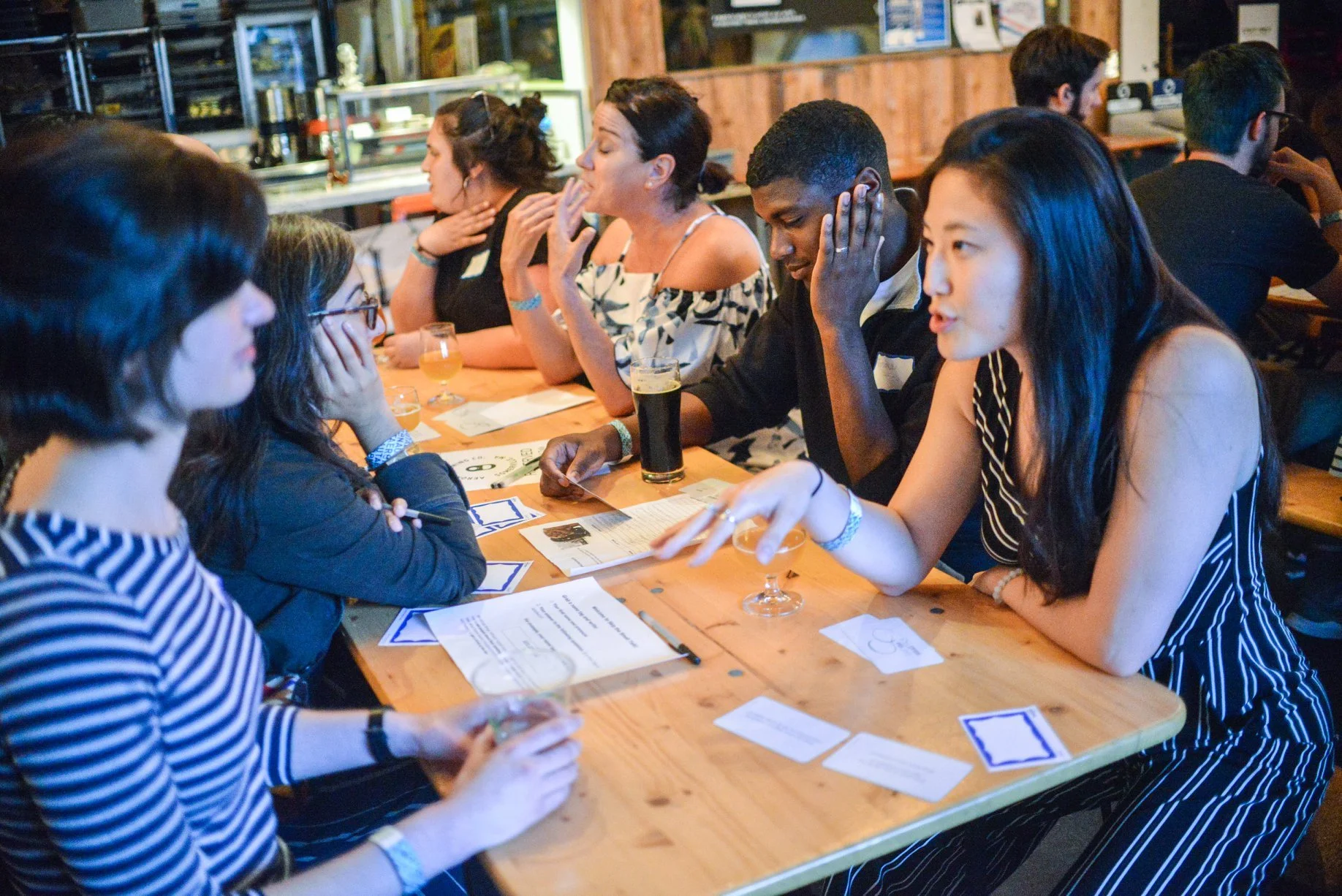The “Highlight Reel” Trap: Comparing Yourself on Social Media
I have an acquaintance with a picture perfect life, through the lens of Facebook: their crisp photos of their incredible upcycled and thrifted fits, ice blue eyes, and tatted alt hottie looks always stop my scroll for a moment. Oh, and they’re a great photographer in their own right, sharing evocative clicks of their extensive travels.
Sitting on my third hand couch in my sweats and hair clip, without the money for my next big tattoo idea, sometimes I get a little jealous and start to feel like maybe I’m just not as cool as these friends in my phone.
Maybe you’ve been here? It’s all over that social media use isn’t good for us. (Most acknowledge that it does play a role in connectivity around the world and over time, exposure to new ideas [good and bad], etc).
There’s two issues in play: our overuse of social media and our tendency to compare ourselves to others. The one feeds on the other, and these companies create products explicitly and implicitly based on comparison. (Though Zuckerberg denied this in Congressional testimony, the first drafts of what became Facebook were explicitly about ranking women by hotness.)
We’ll tackle the problem by breaking down the pitfalls of comparison and suggesting strategies for engaging with social media more mindfully.
The problem with comparison
It’s true that there’s no objective standard against we can evaluate ourselves, and so the relative comparison between ourselves and other people may feel more reasonable. Sure, I don’t look like a magazine cover supermodel, but I went to high school with so-and-so, surely there’s something valid here?
Let’s break down why this one-to-one comparison with others is a flawed strategy:
Limited knowledge - how well do you know yourself? Most of us can admit, there’s a lot we don’t yet understand about ourselves. Take a moment and sit with the gaps in your self-understanding. Now, how much less do you know about anyone else? This part of the magic of relating to other people, there is always more to discover even decades and decades on. Therefore, comparison is really an act of fantasizing about what we think others’ lives, feelings, and experiences are.
Curation - we are usually picking and choosing (to some degree) what others see and experience from us. At work, I dial back the political organizing that is central to my sense of self. When teaching, I lead with my credentials on the subject. Especially on social media, folks are choosing quite consciously what they share with you, when, and how.
False choices - my vignette above illustrates the way comparison also relies on false choices. One of my favorite interpretations of the Wheel of Fortune in tarot includes these lines: “You have encountered luck, both good and bad, you have made choices, some good, some bad. Your life is a rich tapestry that is forever being woven…and you are not the only person holding a needle and thread.” No two of us approach any given situation, no matter how common, with the same set of factors. It’s unfair to yourself (and others!) to make flat comparisons between you.
So how can we change the way we engage with comparison on social media?
3 strategies
Notice - what kinds of posts leave you feeling less than (or, better than)? What leaves you feeling emptied out? When the feeling arises, stop the scroll and pause with that feeling, let thoughts come up and then let them pass. Try closing the window and doing another activity.
Spark - if you’re comparing yourself to someone you actually know, consider using what you connected with in their post to spark a deeper connection. Reach out directly and ask them more about the experience, how it felt to them, or what they most want people to take away from their post?
Curate - dig around in your platforms’ settings, proactively search for, and follow/like/share accounts and posts that offer build on your existing interests in skills. For example, don’t just compare yourself to the Great British Bake Off contestants’ highlight reels, find and follow posts that offer baking tips and decorating advice, then try one of them out!
It’s so important to remember that the digital and physical worlds are not actually separate. The best applications of social media are those that get us to go deeper and broader with our friends, potential connections, hobbies, and skills.
In that spirit, we hope you read this newsletter and join an inperson or online Skip the Small Talk soon!
Folks at an actual Skip the Small Talk event


